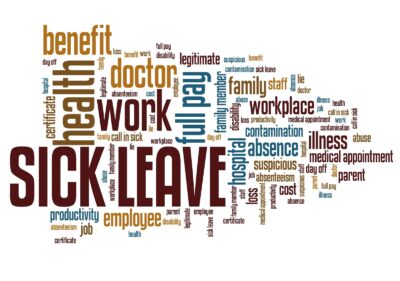What is HR? | Consensus HR in Herts & Beds
What is HR? Unpacking the Value of Human Resources for Your Business:
As business owners, managers, or employees, you may have heard the term “HR” (Human Resources) thrown around, but have you ever wondered what HR really is and what it does? At Consensus HR, we often find that many people don’t fully realise the scope of HR or how crucial it is to running a successful business. Here, we’ll break down what HR is, what it can do for your business, and how we can help companies of all sizes and sectors prevent people problems.
What is HR?
HR, short for Human Resources, is the department within a company that handles everything related to people – your most valuable asset. This can range from recruitment and training to dealing with legal issues, employee benefits, workplace culture, and more. HR isn’t just about hiring and firing; it’s about managing and developing your team to ensure they work efficiently and in compliance with employment law.
Whether you’re a small business with a few employees or a larger organisation with hundreds, HR plays a pivotal role in making sure your team functions effectively, remains engaged, and that you meet your legal responsibilities as an employer.
What Does HR Do?
Here are some of the key areas HR covers:
- Recruitment & Onboarding: HR helps you find the right people for your business and ensures that new employees integrate smoothly into the team.
- Performance Management: Ensuring your team is performing at its best is a critical function of HR. This includes conducting appraisals, setting performance goals, and providing feedback.
- Training & Development: HR ensures your team is equipped with the right skills, offering development opportunities to grow within their roles.
- Employee Relations: Handling conflicts, grievances, and disciplinary issues fairly and legally is vital to maintaining a healthy workplace.
- Compliance & Legal Issues: Employment laws are complex and constantly changing. HR ensures that your business stays compliant with laws like the Equality Act 2010, and handles contracts, policies, and procedures to protect your business from legal risks.
- Workplace Culture & Well-being: HR plays a critical role in shaping your company’s culture, ensuring a positive working environment, and promoting employee well-being.
How Can Consensus HR Help Your Business?
Many businesses, especially SMEs, don’t have a dedicated HR team, but that’s where we come in. At Consensus HR, we offer outsourced HR solutions to support businesses of all sizes and industries. Whether you’re in retail, hospitality, manufacturing, or a professional services firm, we provide the expertise and guidance you need to manage your team effectively and prevent common people problems.
We’re here to help you:
- Develop comprehensive HR policies tailored to your business needs.
- Resolve employee disputes before they escalate into legal issues.
- Ensure your business is compliant with the latest employment laws.
- Manage recruitment and onboarding so you hire the right talent.
- Create a performance management system that drives success.
Preventing People Problems:
People problems can have a significant impact on your business if not managed properly. From high staff turnover to poor productivity and even legal challenges, the costs of neglecting HR can add up quickly. Our retained HR services at Consensus HR are designed to help you prevent these issues before they arise, providing you with ongoing support, advice, and solutions to manage your workforce effectively.
In conclusion, HR is a vital function that can make or break your business. At Consensus HR, we understand the challenges employers face and offer practical, personalised HR support that takes the stress out of managing your team. Let us help you prevent people problems and create a productive, compliant, and happy workplace.



If you’re ready to explore how Consensus HR can support your business, visit our website www.consensushr.com or contact us for a consultation. Let’s work together to ensure your business and your team thrive.
Get Involved in Movember 2024:
Whether by growing a moustache, participating in a fitness challenge, or hosting a mental health workshop, there are many ways to get involved with Movember this year. Every little bit helps in raising awareness and funds for crucial men’s health issues.
For more information on how you and your organisation can support Movember UK, visit the official Movember website.
Matthew Chilcott
Owner, Consensus HR
Disclaimer: This article provides general information on the Movember campaign. For specific health concerns or advice, always consult with a healthcare professional.
To view more about our range of HR & Employment Law Services
Are you concerned about keeping your business up to date with Employment Law changes?
Your Outsourced Human Resources (HR) Department.
For further information on any of the HR subjects we provide, please click the heading below:


































